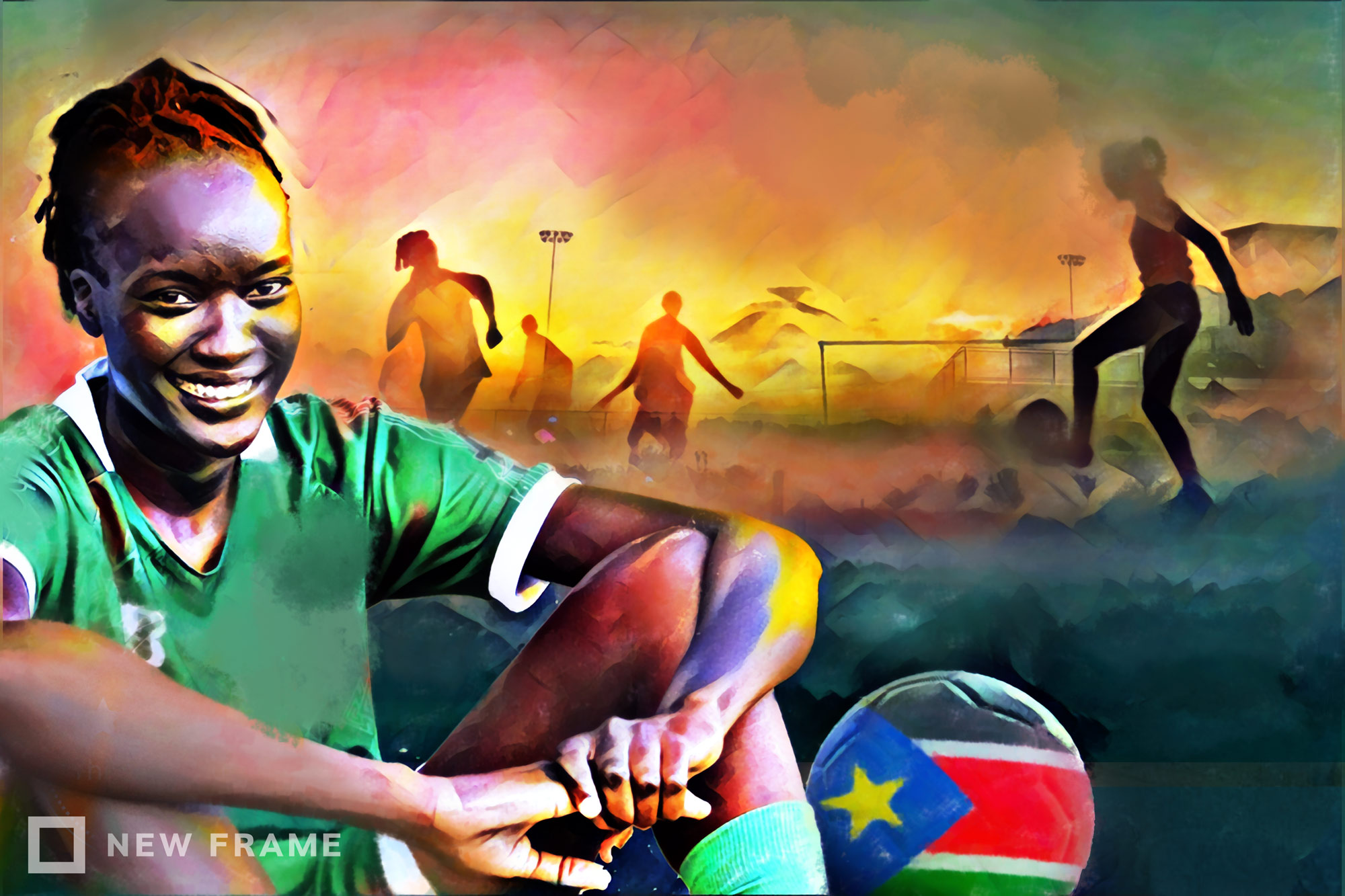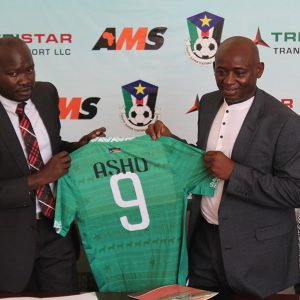South Sudan has big ambitions for women’s football
The youngest country in Africa has a grand plan to deliver one of the best women’s sides on the continent and, in the process, empower girls to take part in the sport equally and freely.
Author:
15 March 2021

When South Sudan became an independent state 10 years ago, its people had myriad hopes as they would be the ones to determine the form, content and destiny of their hard-won new country.
Some women and girls, endowed with football skills but stuck in the cobwebs of patriarchy, looked to the future with optimism. A decade later, that route to the football glory they longed for unfolded before their very eyes as Juba Super Stars and Aweil Women FC faced each other in what became the first-ever South Sudanese women’s league match.
The historic encounter was staged at the Buluk Playground, the training centre for the national team in Juba, on 20 February. Juba Super Stars won 2-0. Eight clubs, drawn from the eight regions of the country, are involved in the maiden 2021 top-tier championship.
The South Sudan Football Association (SSFA) set out to transform women’s football in 2020 through a four-year project dubbed Stars Unite. According to the president of the federation, Francis Amin, the strategic plan aims to build “a transparent, inclusive and sustainable future for women and girls’ football in South Sudan”.
Related article:
As part of the project, “more than 90” women now hold Confederation of African Football (CAF) D licences, said Amin, who has assembled a top team to transform the fortunes of the continent’s youngest country. The SSFA has hired former Ugandan international player Jean Sseninde, first as a consultant and now the director of women’s football as part of its grand plan. The holder of a Uefa B licence has played for teams like Charlton Athletic, Crystal Palace and Queens Park Rangers.
The fullback is also the managing director of a non-governmental organisation called the Jean Sseninde Foundation, which she started in 2006 with the aim of improving women’s football on the continent. She is also a member of CAF’s Women’s Football Committee.
“We are pushing limits,” said Sseninde. “For us [the women’s league] it is about creating a legacy for many other young girls to continue getting this opportunity and to make it sustainable. I do hope that, with my zeal, together we can work as one unit with the South Sudan FA and push women’s football to the highest level possible. We want to be the best in Africa and I will do everything in my power to make sure that the FA succeeds to do that.”
Empowering women
The launching of the league is a big sigh of relief for the likes of activist Soga Grace. The Juba resident’s gender-equality activism mirrors what the federation hopes to achieve. Grace, a musician popularly known as Dia Sisi, has been using her art to advocate for the rights of women and girls in South Sudan and was part of the crowd that watched the league’s inaugural match in February.
Child marriage is generationally rampant in South Sudan. According to the United Nations Children’s Fund, about 52% of South Sudanese girls are married off before the age of 18, and one in three girls fall pregnant before 15. It is against this backdrop that the project manager of Stars Unite, Helen Tarso Aninyesi, said: “We want to show to the world that South Sudan is growing in women’s football, and we also want to change the mindset of some people who still don’t believe that women can play football.”
The expansion of women’s football in South Sudan is a milestone towards gender parity, giving young girls access to the most popular game. Explaining her blueprint for the task, Sseninde said, “It is about sharing knowledge. It is about adding my expertise to the twist with the strategy that we created with the South Sudan FA. I know with all my experiences I have had, I am going to give a hand to make sure that we achieve all the goals that we have in the strategy.
“The most important thing is working together as one team and mentoring the current people who are already there in this position so that, with or without me, we shall always continue to be the best FA in Africa.”
Related article:
At the helm of the senior women’s national team is South African Shilene Booysen, who was roped in on a two-year contract. The Bright Starlets’ tactician has worked as a video analyst and assistant coach at Banyana Banyana and Houston Dash in the National Women’s Soccer League in the United States.
Leading the Bright Starlets is Amy Lasu, who was born in Khartoum during the war in Sudan and forced to seek refuge in Kenya, where she spent her entire childhood. The 25-year-old sensation earned national acclaim when her brace helped South Sudan record their first-ever international victory in a 5-0 thrashing of Zanzibar in 2019.
The next African powerhouse?
While growing up in South B, a neighborhood in Nairobi, Lasu followed in the footsteps of her father, who once played for Juba-based Malakia FC. She “personally got exposed to football academies of which it helped me grow my talent since I was young”.
Lasu was 15 when her father died in 2009. Downcast, she told herself if there was anything worth sacrificing for, it was the sport her father loved most. Lasu cut her teeth with the Ligi Ndogo and Fisa football academies. She entered the big league when she moved to Cheza Afrika Eagles. Her dream to play in Kenya’s Women’s Premier League came true in 2015 upon signing for Gaspo FC. The following season, Lasu joined Makolanders FC, where her African idol, Florence Adhiambo, inspired her to a first national team call-up in 2019.
Related article:
With age still on her side, the pioneering captain of the Bright Starlets is thirsty to play for European giants Olympique Lyonnais. To Lasu, her role as one of the ambassadors of the beautiful game is an opportunity, she said, to “advocate for the rights of the girl child, using the media to spread the word out there that girls are also allowed to play football. Visiting schools and having talks with girls to tell them the importance of indulging in sports.”
“Football knows no gender, religion, race, no country, nothing. So any girl who aspires to play football should take that step. In five years’ time we will be so many steps ahead. I’m sure that we will have grown tremendously. We will have more women involved in the game and that is the aim.”
Even though the groundwork has been laid, there is still a lot of work to be done for the Bright Starlets to be a force on the continent and move up from their lowly 209 ranking by football governing body Fifa. Sseninde believes that women’s football in Africa is “growing slowly and with time we are going to get very far… the most important thing is starting, which most of the nations have done right now.”
Correction, 15 March 2021: This article previously referred to Jean Sseninde by her former title as consultant and not her current one as director of women’s football.



